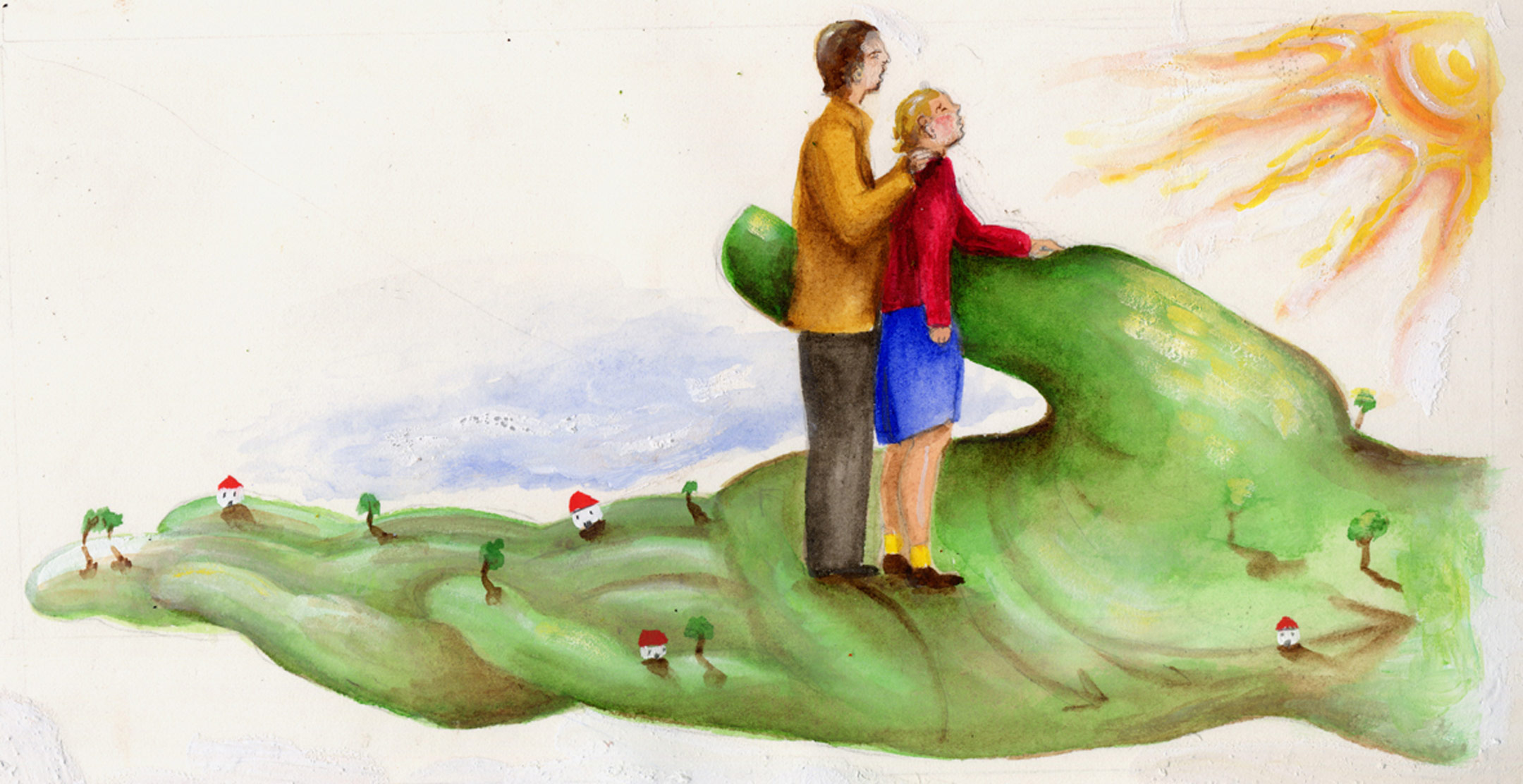
29 Jun A Cyclical Sorrow
Suzanne Bell draws attention to the recurrent nature of the grief experienced by parents of children with disabilities.
An overwhelming sense of loss is a natural reaction when your child is diagnosed with a disability of any kind. It is often unrecognised, however, that a parent’s grief over a disabled child is cyclical in nature and can be triggered by reminders that your child won’t reach certain milestones or enjoy the simple everyday activities that other children take for granted.
My journey through grief began when my middle child, Timothy, was diagnosed with Asperger’s syndrome, a high-functioning autism spectrum disorder.
From early on, my husband, Peter, and I knew we had a very unusual child. At the age of 18 months, Tim could operate virtually any electrical appliance just by watching us use it once. At two years of age, he could complete 60-piece jigsaw puzzles on his own. His kindergarten teacher thought we might have a gifted child, but he was still not verbal.
He would become frustrated and have temper tantrums at kindergarten, but we told ourselves that this was not unusual for young children who are verbally delayed and can’t easily express themselves.
His most disturbing habit was wandering off. Something would capture his interest, or he would want to be on his own, and he would just disappear. His older brother had been fearless as a toddler, too but had grown out of this at three – Tim didn’t.
I remarked to one educational specialist that Tim seemed to have a very uneven development profile – he was very good at some things but lagged behind ‘normal’ in others. In hindsight, I now realise this is typical of people with Asperger’s syndrome.
She astutely suggested that he might have the condition and provided me with the famous ‘Australian Scale for Asperger’s syndrome’ checklist developed by Dr Tony Attwood. But after reading through it, I thought that this couldn’t be what Tim’s problem was because while some of the descriptions fit him, others definitely did not.
I now understand that this is also typical of those with Asperger’s syndrome. And I suspect I wasn’t ready to hear this at the time.
Events came to a head the year Tim started formal schooling.
Until then, his unusual behaviour hadn’t been so pronounced, as he could move freely between activities. But faced with having to sit and concentrate for longer periods and be part of a group, he couldn’t cope. The noise and stimulation of a classroom were too much for him.
His teacher reported behavioural difficulties to us and suggested that we have a paediatrician assess him. At first, we were in denial – we didn’t witness those behaviours at home or when he was playing with friends. Perhaps the teacher just wasn’t coping with him, or they had a clash of personalities?
The crunch came when I witnessed Tim trying to learn athletics. It was the first time I had seen him trying to cope in a large group situation and take direction. While the other kids listened to the coach’s instructions, he would be off in his own little world or would wander off to do something else. I saw the types of behaviour that the teacher had been trying to describe to me and that he just couldn’t cope. I went home and cried.
The diagnosis was not an easy process. Tim was first assessed by a paediatrician, who diagnosed Asperger’s syndrome. He was then referred to a psychologist for a second opinion. She observed him in the classroom and the playground at school conducted a series of tests, and confirmed the diagnosis.
We came away from the paediatrician’s office feeling numbed and shocked, as well as overwhelmed with the enormity of the task before us. We had a long list of suggested treatments for Tim and were uncertain where to start.
Throughout all of this, Tim was very stressed at school and was not coping. He ended up repeating Year 1 because he had missed out on learning so many of the basics.
According to a social worker at Autism Queensland, this is a typical situation in which parents of children diagnosed with a disability find themselves. “With a death, people are allowed time to mourn,” she says.
“However, once a child has been diagnosed as having an autism spectrum disorder, the parents are encouraged and are highly motivated to start working with their child in order to diminish the effects of the disability. They have no time to sit and experience the grieving process. In many cases parents are initially not aware that this process is in fact occurring. So, added to their many other stresses are the issues of unrecognised and unresolved grief.”
I began to feel socially isolated. Friends with ‘typical’ children (and even the best of intentions) just didn’t seem to understand what I was going through. While they were talking about their children winning academic awards or making the sports team, I was just happy if Tim managed to spend some time in the mainstream classroom.
It required an enormous shift in our expectations to learn to celebrate the small achievements, the things that other parents take for granted – such as Tim managing to attend school assembly without ending up lying in the foetal position covering his ears because he couldn’t cope with the noise.
A lifeline was offered to me when I attended our local autism spectrum disorder support group meetings. Here were other parents with similar children experiencing similar difficulties and worse. I found that we were able to help each other with suggestions on dealing with various issues, as well as having access to professional advice and resources.
Over time, we have come to some sort of acceptance of the situation in which we have found ourselves. Tim is still the lovable, unique child he was before he was labelled. I still get frustrated from time to time because I know he has obvious talents in certain areas, such as running, but his social difficulties get in the way. However, I try to focus on the positive things he can manage and excels at, such as maths, computing and chess.
While I cannot claim that Peter and I have found closure to our grieving, we have adapted to our new situation. We accept Tim for who he is and try to help him where possible. We still experience episodes of grief from time to time when Tim’s differences can hit us like a slap in the face. But it is not as intense as it once was, and the knowledge that our experience is a normal reaction helps our family to cope better.
Tim is a part of our family, and while he has special needs, we have learnt not to let Asperger’s syndrome take over our lives and overwhelm our family. His siblings have their own issues, and these also need our attention.
Tim continually learns how to behave socially from his older brother and how to deal with younger children from his sister. They, in turn, learn from him how to deal with someone who is different. He has indeed enriched all our lives.



